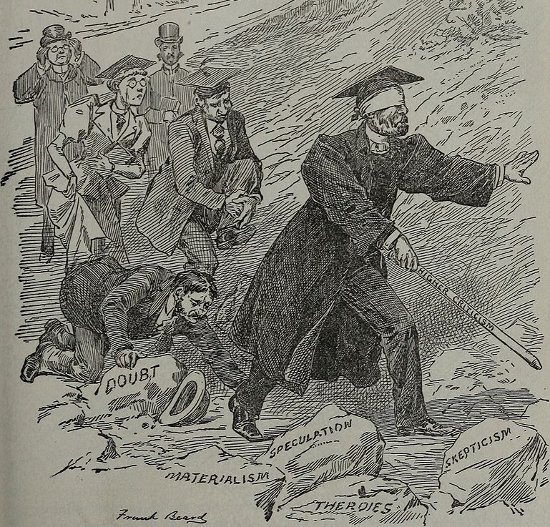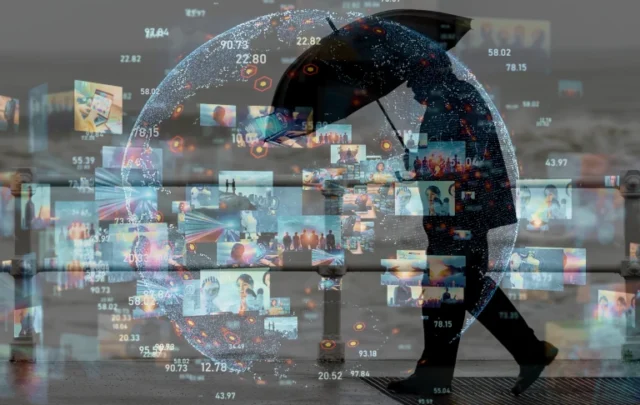In a recent conversation a friend of mine offered the following: “There would be no need to vote on anything if we knew the truth.” That statement has such profound implications that I will only scratch the surface of it here.
First, democracy presupposes that none of us knows the truth. We have our experience, our analyses, our logic and our intuitions, but we don’t have the truth with a capital “T.” We may reliably report our names to bank tellers. This is a social and legal designation, a definition backed by a birth certificate, driver’s license, and other official documents. Even here we are obliged to provide evidence of the truth of our identity to the teller.
But whether it is wise to subsidize electric cars, legalize gambling, or go to war are issues that are far beyond simple social and legal designations. Our information on such topics is always incomplete, conflicting and quite possibly unreliable. We have difficulty verifying through personal observation much of what we are told. And, we are prone to errors of logic and to misinterpretations.
For these reasons we often turn to experts to do our thinking for us. But they all suffer from the same disadvantages as we do and one additional one: Some are paid to say what they say. It is therefore in the cacophony of debate and consultation that we try to arrive at an approximation of the truth although according to the fallibilist view, we can never be sure that we are even close to the truth.
(There is, of course, the problem of truth in context. It may be true that kicking a football through the uprights on a football field during a football game results in three points for the team doing so. But, the same action will have no discernible effect on a U.S. senate resolution authorizing war.)
Our every action then becomes an experiment in which we try to see if our suppositions (and possibly those of others) bear any resemblance to reality. If we are wise and steady, we adjust as we learn from our experience, trying to get closer to our goal.
This is the process that expresses itself in a truly democratic society. It is easy to see that we are very far from this ideal precisely because we have leaders who believe that they possess the truth with a capital “T.” They profess to know first principles—from the Bible, from the field of economics, from the halls of distinguished international relations graduate programs—principles that will lead to an ever improving if not perfect world society, one that is prosperous, just and secure. We call such people ideologues because they believe the world can be perfected by making it conform to abstract ideas.
Ideologues who take their inspiration from the three sources mentioned above are increasingly the targets of skepticism in American, if not world society. But one group whom I like to refer to as the tech overlords are only recently becoming a target of that skepticism. The tech overlords are a grab bag of technology companies, technology scientists and inventors, and technology investors and journalists who have bewitched the modern world through inventions that speed up our daily lives without necessarily making them better.
The tech overlords purport to know how to feed the world, end poverty, empower the individual, solve climate change and colonize other planets. And the key to these feats is, of course, more and newer technology. The wizardry of our ubiquitous cellphones and computers give every person a feeling that he or she is somehow participating in this grand future.
But our tech overlords are as reductionist as the other ideologues I’ve mentioned. These tech boosters fail to understand the many dimensions—social, political, economic, and cultural—of the problems they seek to solve. The natural world and human society are machines for which the tech overlords say they have discovered many of the control buttons. Artificial intelligence will supposedly soon discover the rest.
America was the original modern democracy. Its people were skeptical of the divine right of kings. Its political processes mistrusted the concentration of power and wealth. Its leaders set religion apart from the state having seen what can happen when the two are united. In fact, James Madison once wrote: “The purpose of separation of church and state is to keep forever from these shores the ceaseless strife that has soaked the soil of Europe in blood for centuries.”
American soil has instead given rise to a new philosophy called Pragmatism rooted in fallibilism best described as follows:
[N]o beliefs (or opinions or views or theses, and so on) are so well justified or supported by good evidence or apt circumstances that they could not be false. Fallibilism tells us that there is no conclusive justification and no rational certainty for any of our beliefs or theses.
That is a statement of profound humility. Reality is so much more subtle and complex than we humans can comprehend. If we stumble onto truth, we often do not know it. And, of course, what is true today may not be true tomorrow. The world is ever changing even if our ideas about it stand still.
The picture of the world to come from our tech overlords is found in the myriad speeches of so-called futurists. If it were true that we can predict the future, then we would have no need for democratic deliberation. But, grand techno-uptopian visions of the future are just tricks to make us think that humans know more than they do and that there are “experts” who know so much more than the rest of us that we should just leave everything to them.
The so-called “experts” have brought us a fossil fueled infrastructure; climate change; mechanized slaughter called war; expanding surveillance; cellphone and internet addiction; a rapid decline in the world’s biodiversity; and a toxic soup of chemicals in our air, water and food. I’m not sure we should leave the future to them. I think they are just as fallible as I am.
Image: “A Blind Leader of the Blind.” Source: Blasts From The Rams Horn (1892). Via Wikimedia Commons https://commons.wikimedia.org/wiki/File:%22Blasts%22_from_The_Ram%27s_Horn_(1902)_(14597969520).jpg
























